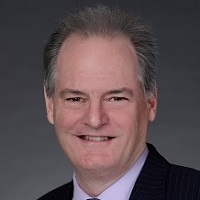Practice Pitfalls: Franchise Law
In the September 2010 issue of LAWPRO Magazine, we asked our claims counsel about what they feel are the biggest malpractice hazards in each area of law based on the claims files they work on every day. Here is an excerpt from that article dealing with franchise law. Click here to read the full article “Practice Pitfalls”.
Acting for franchisors can be particularly risky for lawyers, warns LAWPRO Claims Counsel Anna Reggio. Although some franchisors are large multinationals, many are small and relatively unsophisticated businesses.
One area of risk involves the onerous disclosure requirements imposed upon a franchisor by the governing statute, the Arthur Wishart Act, notes Reggio. Inadequate disclosure entitles a franchisee to rescind the franchise agreement within two years and to extensive damages, including the return of its investment in franchise fees, inventory and equipment costs, as well as compensation for any losses incurred by it in acquiring, setting up and operating the franchise business.
Faced with such a heavy damages claim, a franchisor will often claim against the lawyer, alleging that the lawyer either drafted an inadequate disclosure statement or failed to warn the franchisor of the consequences of inadequate disclosure. Given the potentially significant damages involved, lawyers who practise in this area should seriously consider carrying excess insurance.
Lawyers should avoid dabbling in franchise law, says Reggio. “A lawyer should either be an expert in franchise law or have his or her client retain a franchise law expert.” The client should also retain a chartered accountant familiar with franchises. The detailed financial disclosure requirements are beyond the scope of a lawyer’s typical expertise.
For their own protection, lawyers who represent franchisors must thoroughly explain to them, among other things, the disclosure requirements and the severe consequences of inadequate disclosure. Of course, they should document in writing all advice given and instructions provided.
For a more extensive discussion of the risks inherent in practising franchise law, see “Franchise law tenet: Disclosure! Disclosure! Disclosure!”



This gives a useful warning. Two small qualifications:
(a) I would describe the statutory disclosure requirements perhaps as ‘thorough’ rather than ‘onerous’. Presumably the Legislature thought they were necessary to protect potential franchisees. Is LawPro disagreeing with that judgment? ‘Onerous’ is not a value-neutral term. The practical advice that franchisors’ lawyers will need to give is not affected by the adjective.
(b) I would describe the accounting advice needed as coming from a competent professional accountant, but not necessarily a Chartered Accountant, which is one designation of several that may (but need not) be held by someone practising that profession. If the franchisor needs an audited financial statement, then he/she/it will need the services of a licensed public accountant, who again may but need not be a CA.
Dan,
Really?
Really? Just franchise law?
Ms. Reggio was auditioning for “Lawyers’ Day ” at YukYuk was she?
Telling lawyers they shouldn’t learn law at their clients’ expense.
Send clients to somebody down the street?
Does she give that advice to the big firms, too?
Is the LSUC going to add a section to the the lawyer’s annual report in which we have to attest that we didn’t take any cases in areas of law in which we weren’t expert?
Or is the LSUC going to lower its specialist programe requirements so that almost any lawyer who wants to be known, formally, as C.S., is legally entitled to put those letters behind his or her name. After all, much of the public already thinks that’s what many of us are.
You know, if I’d known there was a possiblity that LawPro would make it a pre-condition to obtaining E&O coverage in Ontario that lawyers warrant they’ll only take cases in areas of law in which they’re expert, I might have stayed around to watch the carnage.
By the way, if what Ms. Regio says is true about lawyers, shouldn’t it be true about the judges we get? Just asking.
I’d pretty much decided to take a vacation from posting or commenting, here, but what you didn’t mean in this one was too good to leave alone.
Thank you and pace.